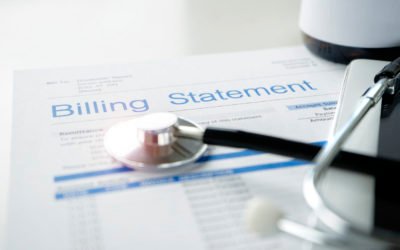The practice of dentistry has become more and more complicated thanks to ever-changing governmental regulations and rules about insurance coverage. All of these changes can lead to errors in a dental office’s billing practices, and that can cost the practice in both time and money.
A dental office simply does not have the resources or personnel to stay on top of the latest laws and to employ them perfectly while billing their patients. Let’s talk about the dental billing errors that tend to ensue and what can be done to stop them from happening in your practice.
Dental Billing Error #1: Failure to Verify Insurance
This is the single greatest cause of dental claims being denied. Due to the rapidity at which insurance tends to change, it is crucial that someone in the practice is responsible for verifying every patient’s coverage before the patient arrives. This must be done even for existing patients.
There are many reasons why insurance companies deny claims, including that the member is not eligible on the date of service. The dental practice may have scheduled the patient for their next appointment (cleaning and checkup) before they were eligible for the appointment to be covered.
Dental Billing Error #2: Incorrect Procedure Codes or Diagnosis
Dental coding claims give the insurance company details of the insured’s symptoms, illness, and what was done for the patient. When submitting a dental bill to the patient’s insurance company, the wrong diagnosis may be listed, or the procedure code has an incorrect character. Everything must be double-checked and verified.
Dental Billing Error #3: Incomplete or Inaccurate Patient Information
Small mistakes can cause delays and errors, including the spelling of the patient’s name and their date of birth. Double-check all the information, and always ask patients if everything looks correct as it appears. Have them verify their insurance information, including group number and policy number.
Dental Billing Error #4: Duplicate or Erroneous Billing
Sometimes, a dentist’s practice may send a bill for a procedure that was never done, or for a procedure that was declined by the patient. Although this is an honest mistake, if these claims are submitted without being corrected, the practice could be charged with fraud.
To avoid such mistakes, perform random chart audits to ensure that your billing practices are in line with what the patient received. Check this information against what is filed with the insurance companies for services rendered.
Dental Billing Error #5: Upcoding or Unbundling
When a dental practice splits bundled services into individual charges, which may be done subversively so they can bill more by stacking charges, this is fraud. This is called unbundling.
Upcoding is similar, and this happens when a dental practice misrepresents the level of care the patient actually received in order to pad their insurance submissions for a larger payment. Billing for services not performed, or billing at improper rates, is another example of fraud.
Outsource Your Dental Practice’s Billing
If you are tired of having to double-check figures before submitting them as claims, or if you have employees who are not always making sure everything is being coded or billed correctly, it may be time to turn over your billing to the professionals at Prospa Billing. We specialize in dental billing, so we know exactly how to make your dental practice run a tight financial ship – and we can help you keep it that way.
Call us today at (844) 663-3686 or fill out our contact form online now to get the conversation started. We look forward to helping you reboot your dental practice’s revenues!




0 Comments